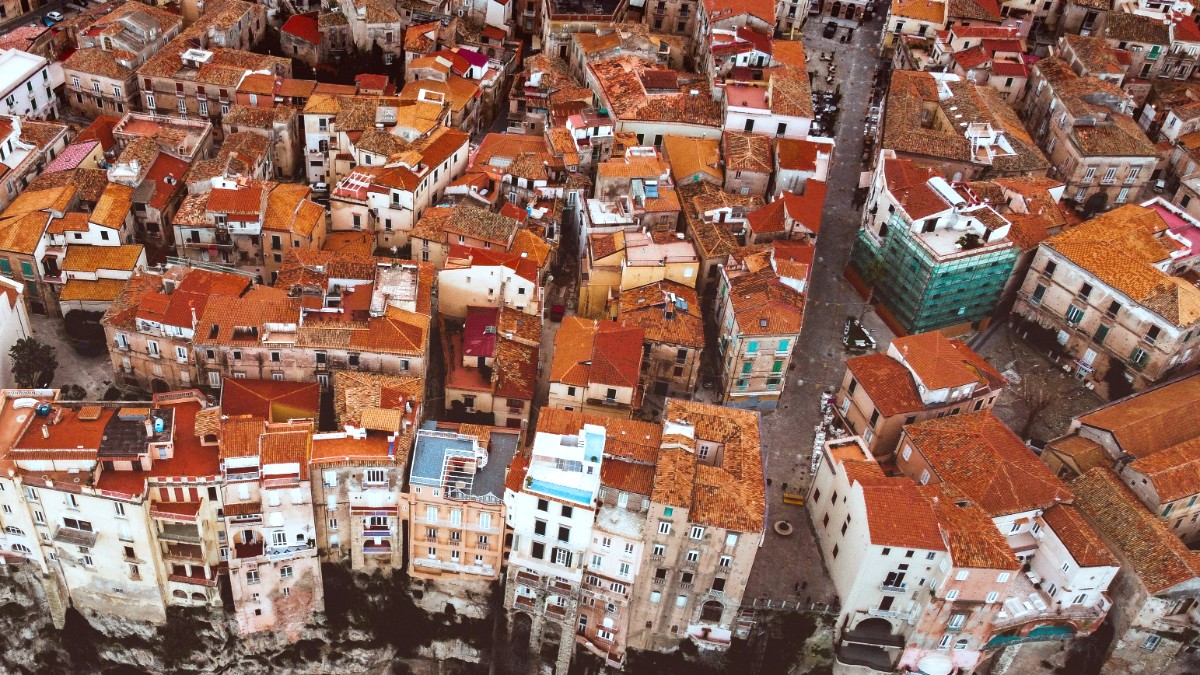
Italy
Tropea operates a local bus service mainly connecting the cliff-perched town center to the beautiful beaches below, including Spiaggia della Rotonda and Spiaggia di Marina dell'Isola, and the port. This bus service especially assists in avoiding the steep walk back up to the historic center from the beach. Regional trains connect Tropea to a wider network of nearby coastal towns like Pizzo, Scilla, and Reggio Calabria. The train also links to the main line at Lamezia Terme, serving as a gateway for longer journeys within Italy.
Public transport services in Tropea run most frequently during daytime hours. Frequency lessens in the evenings and considerably during the low season (November to April). During the high season, services show more frequency to accommodate tourist demand. Always check local schedules upon arrival, as they can vary seasonally.
For short distances and exploring the historic center, walking often is the most efficient and enjoyable method.
After beach time, consider using the local bus for the uphill journey back to the historic center, especially in hot weather.
For excursions to nearby towns like Pizzo or Scilla, regional trains present a practical and scenic way to travel.
Requires valid license (IDP for non-EU), credit card for deposit. Minimum age 21.
Popular for winding coastal roads. Similar license requirements to cars.
Some hotels or local shops offer. Electric bicycles ease hilly terrain.
Drive on the right. Be aware of ZTLs in historic centers. Parking can be challenging.
Tropea's historic center largely comprises pedestrian areas. It accommodates walking well, featuring charming narrow alleys, hidden piazzas, and panoramic viewpoints opening to the sea. The path descending to the beaches from the historic center also accommodates pedestrians well, though it is steep. It displays stunning views.
Tour buses and hop-on-hop-off services are not common within Tropea itself due to its small size and hilly terrain.
Local boat tours and private boat charters are widely available from Tropea's port.
Tropea has no cable cars, funiculars, or other unique mechanical local transport systems.
Beyond standard choices, Tropea presents specialized transport, mainly water-based. These afford the best method to explore the stunning "Coast of the Gods" from the sea.
Thoroughly research and confirm accessible accommodations before booking.
Verify ramps, elevators, and room features.
Identify accessible routes within the town, focusing on less steep or paved areas.
Utilize local bus service where available for inclines.
Taxis offer direct transport to many points, bypassing challenging pedestrian areas.
Confirm accessibility with taxi companies in advance.
For optimal movement, notably for first-time visitors, walking and using regional trains for day trips represent the most effective strategies.
Consider renting a scooter for exploration beyond the immediate town center if comfortable with two-wheeled transport.